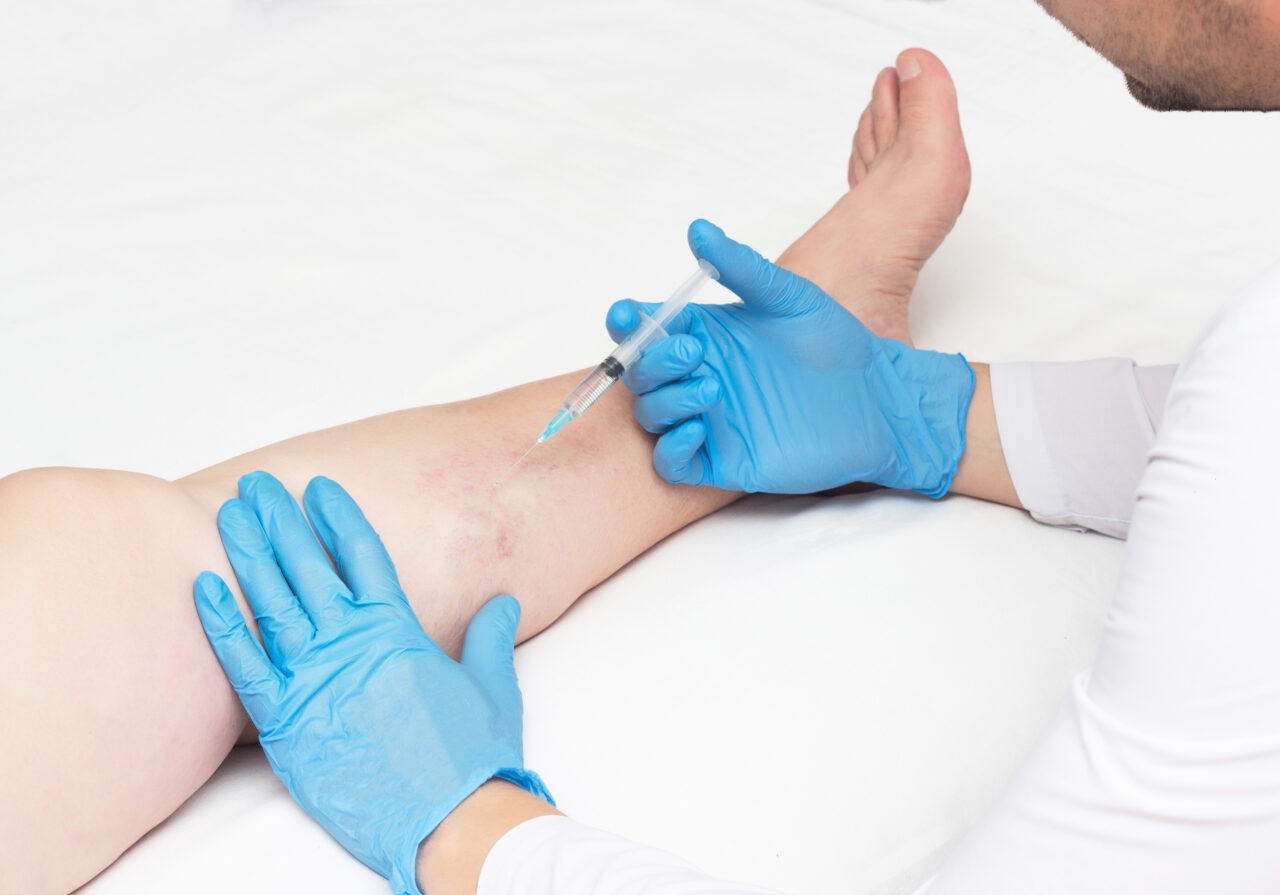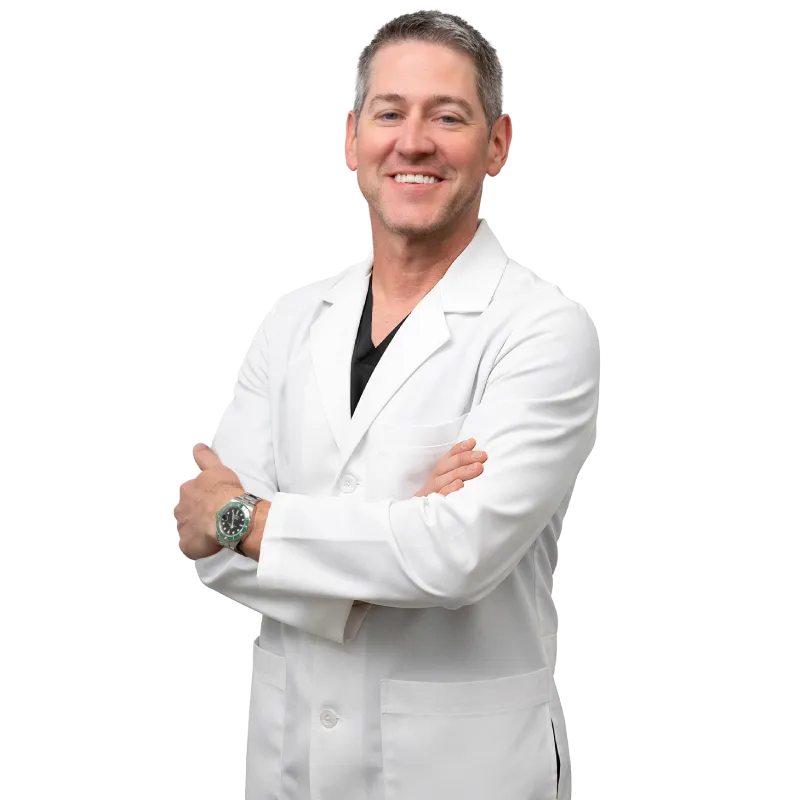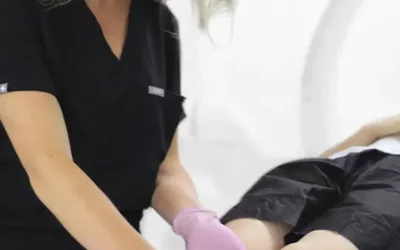What is a vein doctor called? And other frequently asked questions about vein doctors in Texas
May 01, 2022
What is a vein doctor called?
The official terminology for a vein doctor is a “phlebologist.” The term “phlebologist” comes from “phlebology,” which is the branch of medicine concerned with the diagnosis, treatment, and prevention of vein problems. As such, if you have any vein-related problems, such as spider veins, mild varicose veins, or the signs and symptoms of vein disease, you must consult a vein doctor or phlebologist.
What does a phlebologist do?
A phlebologist is a physician with specialized training in the diagnosis and treatment of vein problems. As such, a phlebologist examines your leg veins, runs advanced vascular imaging tests, such as duplex ultrasound, and determines if you have chronic venous insufficiency.
Depending on your diagnosis, the vein doctor curates a personalized vein treatment plan consisting of minimally invasive procedures, such as radiofrequency ablation, endovenous laser ablation, venaseal, sclerotherapy, and ambulatory phlebectomy.
How do you know if you have vein problems?
Some of the signs and symptoms of vein problems are obvious — spider veins and varicose veins. If you notice large clusters of damaged blood vessels underneath your skin’s surface (spider veins) or bulging out of your skin (varicose veins), you know you have underlying vein problems to address.
However, some of the early signs of vein disease aren’t as visible or easily identified. You may also have vein problems if you experience leg heaviness, frequent leg cramps, throbbing leg veins, leg swelling, and restless leg syndrome, especially at the end of the day or after long periods of sitting or standing still.

When should you see a vein doctor?
You should see a vein doctor if you notice any of the signs or symptoms of chronic venous insufficiency, the root cause of most vein problems. Venous insufficiency is a circulatory disorder wherein the collapse of vein valves leads to backward blood circulation and the accumulation of blood in leg veins, eventually leading to numerous vein problems.
Chronic venous insufficiency progressively worsens with time if left untreated. The initial warning signs of vein disease are often benign and hard to identify, but the symptoms escalate until you experience severe complications, such as profuse bleeding from burst varicose veins, skin disease, leg ulcers, and deep vein thrombosis. As such, you must see a vein and vascular specialist if you notice the signs and symptoms of vein disease.
What are some vein diseases?
- Spider Veins: Dense clusters of reddish or bluish blood vessels visible just underneath the skin’s surface, looking like a dense mass of spider webs spreading outwards.
- Varicose Veins: Large blood vessels that dilate and protrude out of the skin’s surface, looking like a mass of tangled, twisted, and knotted ropes on the legs.
- Restless Leg Syndrome: The incessant and uncontrollable urge to shake or move your legs, especially at the end of the day or after long periods of sitting or standing still.
- Leg Ulcers: The formation of non-healing wounds on the skin’s surface, known as ulcers, because of insufficient blood circulation in the legs.
- Deep Vein Thrombosis: The formation of blood clots in leg veins because of accumulated blood, which can eventually lead to a potentially fatal pulmonary embolism.
- Chronic Venous Insufficiency: A circulatory disorder wherein the collapse of vein valves leads to the accumulation of blood in leg veins, leading to vein problems.
BOOK AN APPOINTMENT
Vein Treatments are covered by most major medical insurances, including Medicare. Verify your coverage for FREE today!
What are the symptoms of vein disease in your legs?
- Leg heaviness
- Frequent leg cramps
- Restless leg syndrome
- Throbbing leg veins
- Leg pain
- Leg swelling
- Spider veins
- Varicose veins
- Skin discoloration
- Skin disease
- Leg ulcers
- Deep vein thrombosis
What happens if varicose veins are left untreated?
If varicose veins are left untreated, blood will continue accumulating in leg veins, leading to excessive vascular dilation. If the vein walls continue expanding, the veins will continue weakening, eventually leading to burst varicose veins. When your varicose veins burst, you experience profuse bleeding, for which you must be taken to an emergency room.
What is the most effective treatment for varicose veins?
Radiofrequency ablation, endovenous laser ablation, and venaseal are some of the most effective treatments for varicose veins. During these minimally invasive procedures, the vein doctor channels thermal energy, laser energy, or medical adhesives into the diseased saphenous vein via a catheter. The diseased vein collapses or seals shut, and the accumulated blood reroutes into healthier leg veins.
The aforementioned minimally invasive vein treatments address the root cause of varicose veins, but not the superficial varicose veins. After the primary vein treatment, the vein doctor performs an ambulatory phlebectomy, which involves the physical extraction of superficial varicose veins through small incisions on the skin’s surface.
How can I get rid of varicose veins without surgery?
Vascular surgery is the old treatment for varicose veins — most reliable vein doctors now recommend minimally invasive varicose vein treatments. As such, when you visit a reliable vein treatment clinic in Texas, you can rest assured that your vein doctor will only recommend minimally invasive procedures that involve a small incision or a few injections. Minimally invasive vein treatments are in-office and outpatient procedures that conclude within an hour with no hospitalization or downtime.
Are compression socks good for varicose veins?
Compression socks are skin-tight garments that apply pressure on the varicose veins, thus pushing some of the accumulated blood towards the heart. Compression stockings alleviate some of the symptoms of venous insufficiency and prevent varicose veins from worsening, but they can’t treat the root cause of your vein problems.
Does insurance cover varicose vein treatment?
Insurance plans often cover varicose vein treatments if you have underlying chronic venous insufficiency or if your life is significantly impacted by varicose veins. Please request free insurance verification at your vein treatment clinic in Texas to determine if you’re eligible for insurance coverage.
Meet Our Texas
Vein Doctors

Shane Volney MD
Spider Vein and Varicose Vein Doctor
Dr. Shane Volney is a board-certified physician with advanced training in minimally invasive treatments for chronic venous insufficiency (CVI), varicose veins, and spider veins.

James Chalk MD
Spider Vein and Varicose Vein Doctor
James E. Chalk, MD, is a board-certified surgeon with advanced training in vascular surgery, specializing in treating varicose veins and spider veins.
contact us today
Call us
Speak instantly with one of our team members; they will answer any questions you may have regarding insurance coverage, booking an appointment and our vein treatment locations. (512) 975-3421
Book online
Visit our Book Appointment page and instantly request an appointment at a Texas vein center near you. We offer Free Insurance Verification before your appointment.
Get directions
Learn how to easily get to the Texas vein center nearest to you.
FEATURED POSTS BY VEIN DOCTORS
What is the treatment for varicose veins? Our vein doctors describe vein treatments in Texas
What is the treatment for varicose veins? Our vein doctors describe vein treatments in TexasMay 01, 2022What is the treatment for varicose veins?In the past, spider veins and varicose veins could only be treated via complex surgical procedures that involved...
Our Vein Doctor in Texas Describes the Vein Treatment Process
Introducing Our Vein Doctor in Texas The Spider Vein and Varicose Vein Clinic is led by Dr. Calvin Jung, an incredibly talented and charismatic vein doctor in Texas. He specializes in vascular imaging and the latest minimally invasive spider vein and varicose vein...
What are the Qualities of a Good Vein Doctor in TX?
The vein doctor must be in an accessible vein clinic in Texas Location is certainly not the most important quality to consider when looking for vein doctors. And you must avoid the impulse to hop over to your nearest medical spa or vein center for treatment — that...
9 Reasons to Consult Our Vein Doctor in Houston, TX
#1. You have spider veins and varicose veins The most obvious reason to consult our vein doctor in Houston is that you have spider veins and varicose veins. Most patients consult vein doctors when they notice spider veins and varicose veins on their legs. Spider veins...
